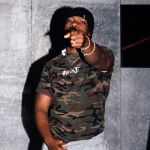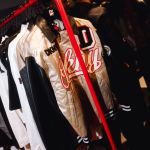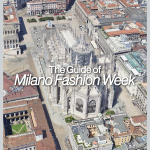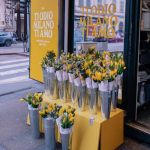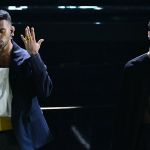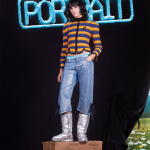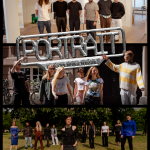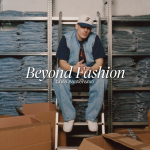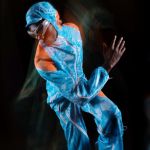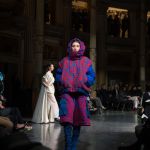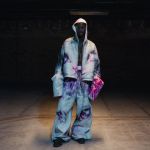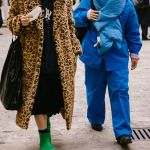
What brands have best managed communication on Instagram during the pandemic?
Small fashion houses have made the most out of this moment to strengthen their community
May 6th, 2020
The Coronavirus pandemic has affected every economic and productive sector, showing its own, catastrophic, effect also on the fashion industry. The global health emergency and the consequent lockdown have not only caused the stopping of supply and sales chains, with dramatic consequences, and the cancellation of strategic events in the sector, which have somehow been replaced by digital gatherings, but they have radically changed the communication of influencers and brands. If the influencers took the opportunity to diversify their content and experiment on other platforms, the lockdown period for brands represented above all an opportunity to strengthen their community, perhaps the most used (and abused) word of these weeks.
Prêt-à-porter
If we were to draw up a ranking of the brands that have used social networks best, especially Instagram, during the pandemic, the top positions would be occupied by medium-small brands, ready-to-wear and not luxury. In fact, it was these that created the most interesting and successful contents, while not denying and hiding the dramatic situation that's currently going on, they turned it into a moment of sharing, aimed at strengthening the bond with that famous community. Jacquemus is certainly part of this list, probably the designer who best uses social media right now, precisely because of the ultra-personal, fresh and honest narration he uses. To decree, the success of his strategy came the homemade shooting on FaceTime starring Bella Hadid. They are digital-native brands, or in any case, born from the mind of young designers, the others who have been able to manage the moment with intelligence, starting from the involvement of people and personalities close to the brand. Sunnei has brought its followers to the discovery of historic buildings, in the studio of artists, in the kitchens of chefs and among the consoles and drums of the musicians of its community; after experimenting it with her team, Paloma Lanna of Paloma Wool invited 100 of her followers to a house party on Zoom; in addition to launching a series of podcasts featuring influential women in the industry, Ganni launched the hashtag #GanniWFH, asking its followers to show their outfits from home; Coperni has challenged its community to design the most famous bag of the brand, announcing that the author of the best design would have won a real Coperni Swipe Bag.
Together with live, the keyword of this pandemic was 'challenge': it was fundamental for each brand to engage its followers in a sort of challenge, a competition for those who showed their artistic skills in the best possible way, those who best expressed their idea, who most of all proved close to the taste of the brand, so much to be rewarded.
Luxury
On a social and communication level, the pandemic proved to be a much more difficult challenge for luxury brands, accustomed to effective communication and the use of partnerships with influencers, but who at the moment remained a little victim of their communication, aseptic and impersonal.
Some took the opportunity to offer a sort of behind-the-scenes look of the brand, to find out how a collection is born, who designs it and who sews it, as Alexander McQueen did between a challenge and a playlist on Spotify; while Dior has virtually reopened the exhibition dedicated to Monsieur Dior, publishing photos of sketches and vintage photos on Instagram and YouTube videos within the retrospective.
After announcing the start of the production of masks and clothing for the French healthcare staff, Louis Vuitton continued to post photos of advertising campaigns shot in exotic places, and then focused on the theme of travel, Maison's core value, underlining how travel can also be a mental and imaginary escape, thus publishing old photos of campaigns starring Angelina Jolie and Catherine Deneuve.
After the publication of rather anonymous graphics or in any case, far from the taste and aesthetics for which the brand is known, Gucci has moved on to a narrative of the lockdown little in line with the general mood, in some ways too aristocratic and therefore distant, which as the latest collections designed by Alessandro Michele seem to have lost some polish and its innovative touch.
From the top of its Ivory Tower, Prada has stood as a beacon of culture and art even in times of lockdown, creating Possible Conversations between great personalities of art and cinema and fashion. Given the profile numbers, not a disruptive success.
It should be highlighted that great and historic fashion houses such as Louis Vuitton or Chanel, often part of powerful agglomerations, have little interest in giving life to live performances with influencers or to work on engagement operations with their followers, if not only during the Fashion Week, simply because they don't need to. They are representative of an ideal, a status quo, which is unlikely to be brought down or even distorted by the pandemic, if not actually strengthened at the end of this situation. Making community serves a young brand to grow, to create a voice that becomes identifying and therefore recognizable for an audience, an audience that when it will possible to leave the house will be more tempted to buy a product of that brand. It matters little whether Hermès makes a live on Instagram or not, the Kelly bag remains a timeless object, an investment that probably assumes even more value, a safe haven even in the time of the pandemic.
Sportswear
A brand that has always made communication one of its major strengths is Nike, which in this case has also lived up to fame. A quote with inspirational tones was enough to make the post viral, to then focus on another type of challenge, the sports one, encouraging its followers to continue training at home. Having LeBron James and Serena Williams among the testimonials certainly helped.

adidas has also relied on its network of athletes and creatives, who through the #HomeTeam initiative asked its best-known personalities to tell how to let creativity free during the long quarantine days. IGTV videos featuring several world-class athletes interviewing with each other were also highly appreciated.
Lifestyle
To help keep the house tidy and harmonious, MUJI has remained faithful to its DNA, characterized by a minimal and modest aesthetic. It was a succession of recommendations and tips on how to tidy the house, on how to rearrange objects in the best possible way and to obtain even more space, stationery items were further advertised, ending with a sort of tutorial on how to cut hair at home from alone, obviously with MUJI's scissors.
The growth of IKEA Italia's profile is interesting, a brand part of one of the most advantaged sector at the moment, despite the situation, which by launching the hashtag #RipartiamoDaCasa has built an effective narrative on the enhancement and pleasure of home spaces. From advice on how to improve the smart working station to how to enhance a small outdoor space, IKEA has gained almost 45 thousand new followers in the last thirty days.
As always, Amazon, the company that most of all has gained in lockdown times, deserves a separate discussion. After the announcement of the hiring of 100,000 new people, but also after the protests of several employees who complained of unsafe working conditions, the attention on Instagram has shifted from consumers to their workers, highlighting their skills, their value, the resistance and their importance above all in these times.
Although the consumption of social media and the time spent in front of a screen have increased significantly during the quarantine, there has been a sharp drop in brands in advertising investments, such as in sponsored posts. As experts point out, the days of the lockdown were not a time to promote marketing operations (not in most cases at least) and more generally they were not seen as an opportunity to generate revenue, as much as a strategic moment part of a long-term plan. In this sense, labels don't want to focus on sales and therefore revenues, but instead, they're aiming to work on brand reputation, on brand value, so in difficulty and destined to change with the pandemic. They operate on the assumption that the consumer will continue to follow a brand if this has proved essential and vital even during the pandemic when a fashion brand is by definition something unnecessary. It is clear that this indispensability does not pass (necessarily) from the purchase, but from the type of entertainment that the brand offers, from the type of communication that it makes during such a difficult and dramatic, and therefore crucial, moment.
















